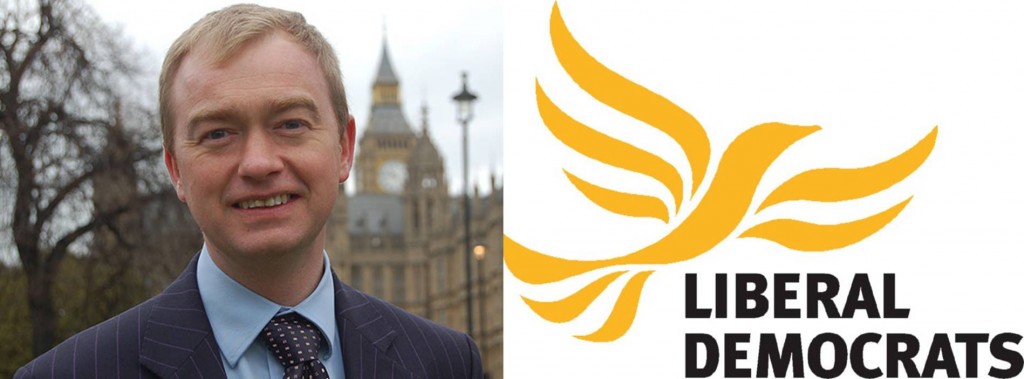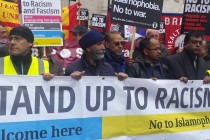The day after UKIP’s first-ever party political broadcast, the Liberal Democrats made an official complaint to the broadcasting watchdog Ofcom and the BBC over the broadcast’s content, claiming it incited racial and religious hatred.
The Lib Dems said the presentation and tone of the broadcast focused on provoking negative and hostile reactions. It uses images, music and misleading information to inflame racial tension – a direct breach of BBC and Ofcom rules.
They accuse UKIP of deliberately constructing an offensive ad, using an array of questionable and in some cases entirely misleading assertions that misrepresents Turkey and the Turkish people. As such, it is set on pitching community against community.
Given Turkey has only met 13 of the 35 requirements (the negotiation chapters) there is clearly a long way to go before it ascends to full European Union membership. Part of this process requires prospective member states to uphold European vales and standards in civil liberties, human rights and the role of women in societies, making the aspiration of membership a vital vehicle in bringing about such political and social changes.
Leader of the Liberal Democrats Tim Farron said:
“This Donald Trump style scaremongering has no place in British politics.”
“Wherever you stand on the European campaign, inciting hatred, by getting down in the gutter in a desperate grab for votes debases politics. The politics of division is something millions of liberally minded people despise and I will keep doing all I can to make a case for inclusion and tolerance.
“This broadcast was not just incredulous, it’s dangerous.”
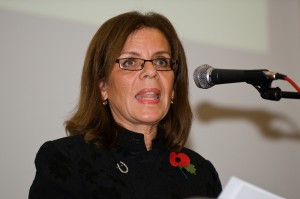
Lib Dems Equalities Spokesperson Baroness Meral Hussein-Ece, herself of Turkish Cypriot heritage said:
“This is stomach turning, dog-whistle politics demonising an entire country and all its people. The large Turkish community in the UK has made an enormous economic and social contribution over many decades. They play a vital and vibrant role in our society and shouldn’t be subject to Nigel Farage’s nasty politics.”
The full text of the Lib Dems complaint letter:
We are writing to make a formal complaint about the content of the Party Political Broadcast of the UK Independence Party broadcast on 3rd February 2016.
The presentation and tone of the piece is focused on provoking on negative, hostile reaction towards Turkey and the people living there, as well as Turkish people in the UK and elsewhere. It has been deliberately constructed to be offensive and breaches the code in that it “incites racial or religious hatred”, whilst using an array of questionable and in some cases entirely misleading assertions to advance this ‘case’.
The piece is offensive and set on pitching community against community.
Further to this, in relation to the guidelines for the production of party broadcasts[1] the broadcast is not clearly labelled to avoid confusion between it and a documentary, or news piece.
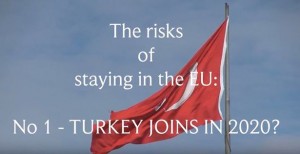
The guidelines state:
“Broadcasts that closely mimic or parody the format of established programmes on any channel, particularly news programmes, should be clearly labelled to avoid any confusion or run the risk of misleading the audience.”
The broadcast adopts a documentary style from the outset, with the use of newspaper clippings, a presenter addressing the camera in a style closely associated with news reports, or documentary programmes and presentational deploys devices like graphs (albeit unsourced) which are in keeping with the format of many new programmes and documentary styles.
In one scene the presenter states:
“Last year 9 journalists were sent to prison in Turkey. On a list of press freedoms Turkey ranks 149th out of 180 countries, it might explain why I felt more comfortable filming this back here in the UK”
This is a clear attempt to portray the presenter as a journalist, who a viewer would reasonably believe to be impartial on a genuine news programme on the BBC or ITV.
The style adopted and lack of onscreen reference is in clear breach of this guideline.
This in itself is grounds for complaint, but we are especially concerned by the misleading claims made in the broadcast. This is in breach of section 2.2 of the Ofcom broadcasting code[2] which states
2.2 Factual programmes or items or portrayals of factual matters must not materially mislead the audience.
In some instances it could be argued that a party political broadcast does not necessarily constitute a ‘factual programme’ however the nature of this broadcast, in its style and its presenting of claims as factually based constitutes a portrayal of a factual matter and misleads the audience in a number of places, specifically:
Turkey could have the maximum amount of seats – 96. UK only gets 73
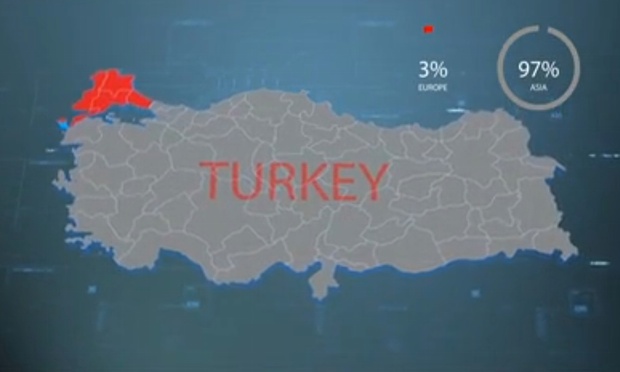
Since 2014, in accordance with the Lisbon Treaty[3], there is a maximum of 750 seats in the European Parliament, so Turkey joining would not receive 96- it would be less than that (and others would lose some too). Turkey’s population share as it currently stands would represent 17% and the UK, France and German’s population share would still represent 42%. Our population is set to rise, and that would be reflected in our number of seats.
Potentially 15m migrants could leave for the EU in the first 10 years of EU membership
This is presented as a projection and is not credible, a 2011 Home Affairs Select Committee reported that:
“The MPs’ report says that the available forecasts for the likely flow of Turkish nationals to other European countries should it join the EU range from 500,000 to 4.4 million up until 2030. One estimate by Oxford University suggests that the figure could be as low as 60,000 to 70,000 a year to Europe as a whole.”[4]
More than ¼ of Turkish women married before 18
This statement is unfounded. The Girls Not Brides organisation estimates that 14% of girls married before the age of 18 in Turkey, this percentage clearly does not represent one quarter.
The Girls Not Brides organisation does caveat this with the fact that “statistical data available may not be representative of the scale of the issue since most child marriages are unregistered and take place as unofficial religious marriages.”[5]
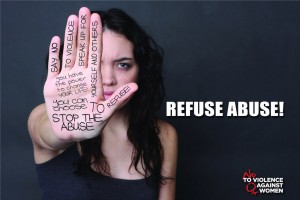
Turkish women are ten times more likely to suffer physical abuse or violence than in Europe (UN Report 2011)
A UN Women report Progress of the World’s Women: In Pursuit of Justice[6] published in 2011 said that 39% of women in Turkey have suffered from physical violence, at some time.
This report looked at violence against women, specifically into the prevalence of intimate partner violence. The report shows the prevalence of violence against women in the UK was 19%, 35% in the Czech Republic and an average across Europe as being between 5-35%. The suggestion therefore that Turkey’s prevalence of violence against women is 10 times that of the UK is therefore misleading and incorrect.
Turkey average salary £429 per month, UK is £2,200
Although this figure is accurate, it is misleading as there are 8 other EU member states which currently have lower average salaries than Turkey. Furthermore, Turkey has the 17th largest economy in the world, its GDP has grown year on year, and it is a member of the G20.[7]
The risks of staying in the EU: No1 Turkey joins in 2020?
In order to become a full member of the European Union, all countries must meet a number conditions, known as negotiation chapters. To date Turkey has only passed 13 of the 35 negotiation chapters which include a wide range of areas including human rights and socio-economic data.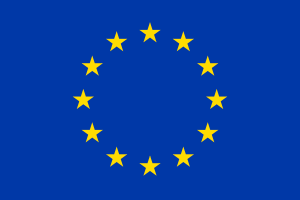 [8] The adoption of further chapters would have an impact on a number of areas referenced in the broadcast ahead of any possible future ascension, and it is not likely that Turkey is about to join the EU.
[8] The adoption of further chapters would have an impact on a number of areas referenced in the broadcast ahead of any possible future ascension, and it is not likely that Turkey is about to join the EU.
The European Union is a crucial vehicle in improving civil liberties, human rights and the role of women in societies and countries that wish to apply to join have to uphold these values.
Ahead of a European Referendum where passions on both sides of the debate will be intense, it is our hope that this offensive and negative broadcast is not a taste of things to come.
The campaign should be characterised by an exchange of ideas and cases that are grounded in fact, and stated clearly so the British people can make up their minds. It should not become an excuse for the introduction of US-Style ‘attack ads’ or seek to inflame divisions and hatred against communities.
The lack of sources referenced in the broadcast makes comprehensively fact checking the piece difficult, but there are clearly a number of areas in which it is misleading.
[1]http://www.broadcastersliaisongroup.org.uk/guidelines/production-guidelines-party-broadcasts
[2]http://stakeholders.ofcom.org.uk/binaries/broadcast/code-july-15/Ofcom_Broadcast_Code_July_2015.pdf
[3]http://eur-lex.europa.eu/legal-content/EN/TXT/?uri=CELEX%3A12007L%2FTXT
[4]http://www.statewatch.org/news/2011/aug/eu-hasc-turkey-jha-report.pdf
[5]http://www.girlsnotbrides.org/child-marriage/turkey/
[6]http://menengage.org/resources/progress-worlds-women-2011-2012-pursuit-justice/
[7]http://www.worldbank.org/en/country/turkey/overview
[8]http://ec.europa.eu/enlargement/countries/detailed-country-information/turkey/index_en.htm
Main photo: Lib Dems leader Tim Farron

